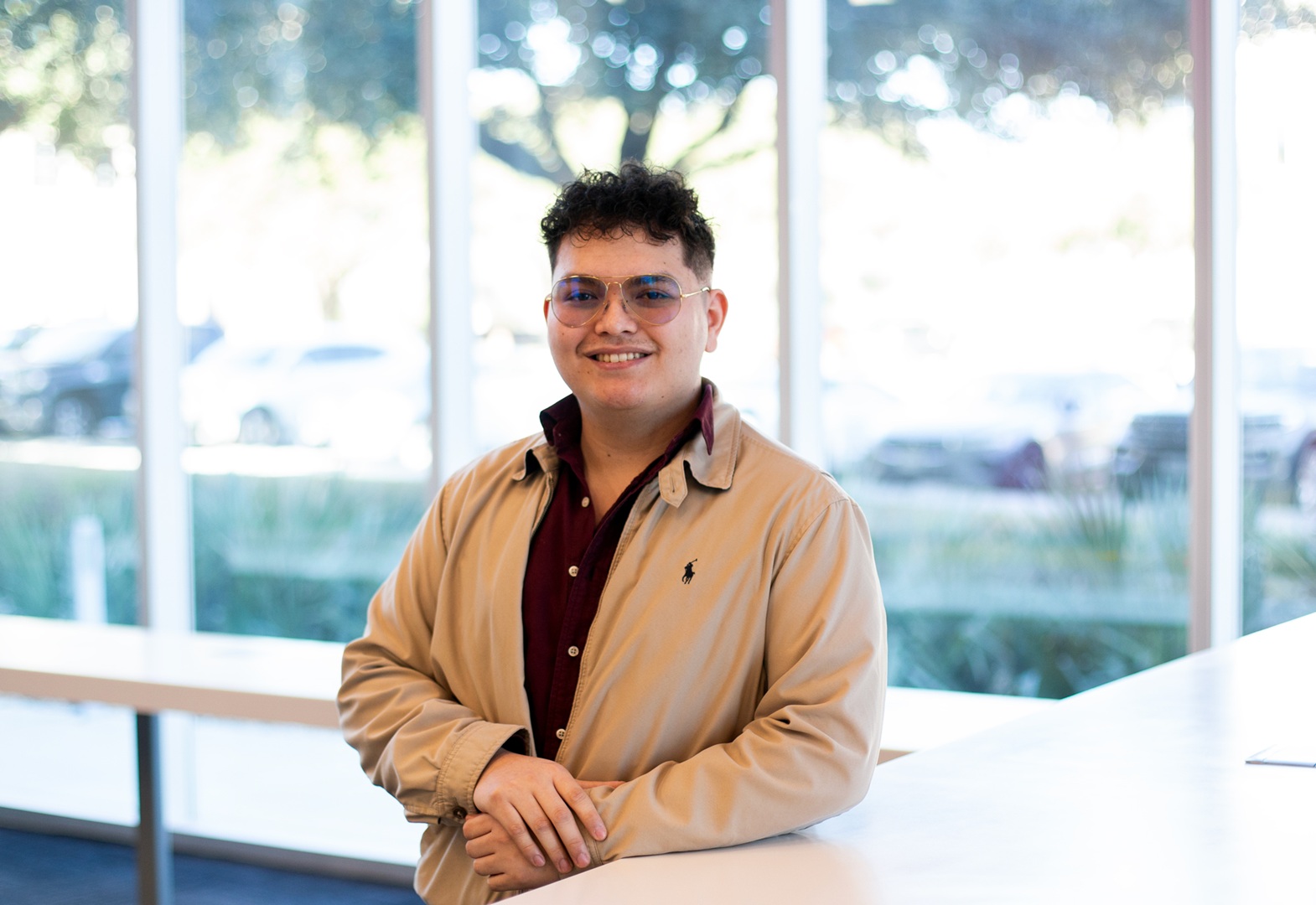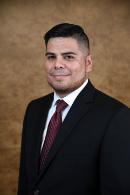UHV alumnus accepted into neuroscience doctoral program

University of Houston-Victoria alumnus Jose Ramirez was recently accepted into The University of Texas Medical Branch Neuroscience doctoral program. Ramirez, who graduated in 2023 with a Bachelor of Science in biology, said it was a dream come true, reflecting on the twists and turns of his life that led up to this point.
“I honestly couldn’t believe that I was accepted,” Ramirez said. “There are applicants from all over the world conducting great experiments and research, and I never imagined I would be one of the ones selected for the Ph.D. program.”
Ramirez, who is currently working in an optometry office, received the acceptance notification in early January while on his break. Overwhelmed with the news, the Victoria resident said the first thing he did was rush home to tell his parents.
He will be going straight from his undergrad to the Ph.D. program at UTMB because of his past experiences with research that revolves around ocular diseases. Usually, when a student applies to a Ph.D. program, having a master’s degree gives the applier an edge over other candidates. However, if a student has a dedicated record of research in their particular area, recruiters take that into account when weighing out their judgement.
His academic journey, however, was not straightforward, Ramirez said. He spent three years welding during his time at Victoria East High School and envisioned himself going through vocational school to become a welder after his high school graduation.
“But deep down, I knew I wanted something more,” Ramirez said. “I decided to follow in the path of my family legacy of charting the unknown, and that led me to pursue college.”
Ramirez enrolled at UHV in the fall of 2018. As a first-generation college student, Ramirez navigated through the application process with the support of his family, inspired by the legacy of his late grandmother, Margarita Ibarra, who immigrated to the United States decades prior to pursue the American dream.
“She was the first one in her family to do it,” Ramirez said. “She was able to see the vision that was America and all that America offered. And I wanted to follow in her footsteps.”
In his sophomore year, Ramirez officially declared himself a biology major after realizing the joy he found in his course work and working inside of a research lab.
“Being in a research lab, there’s days where I just sit down and conduct research, look at the papers and when I’m close to an answer, I find there’s more questions behind that,” Ramirez said. “That’s what drives me – the idea that there is always something more.”
During his time at UHV, the scope of his research involved looking over various ocular diseases, such as dry eye, keratoconus and specifically primary open-angle glaucoma, a leading type of glaucoma that leads to irreversible blindness. There are not a lot of therapeutics that target the site of pathogenesis, the process by which a disease or disorder develops, Ramirez said.
To further find the root causes, Ramirez said he worked with a team at UHV to explore microbial byproducts in the gut, especially butyrate molecules, to understand their potential for protecting against glaucoma. The study aimed to determine if using butyrate on glaucoma cells can prevent the conditions that lead to primary open-angle glaucoma, he said.
One of the people on the research team was Ramirez’s principal investigator, Humberto Hernandez. The two worked together for three years after Hernandez offered Ramirez a position in the lab to continue to learn and conduct experiments involving ocular diseases.
“I was thrilled to learn that Jose had been accepted into his preferred program at the University of Texas Medical Branch,” said Hernandez, UHV assistant professor of biology. “Jose Ramirez is a great example of hard work and perseverance. His dedication in both the laboratory and his academic pursuits has earned him numerous accolades for his research contributions. As a first-generation college student, Jose's acceptance into graduate school is a significant milestone, marking a new chapter not only in his career but also for his family. I am immensely proud of Jose and his achievements, and I extend my heartfelt wishes for success as he embarks on this exciting journey.”
With an official start date, Ramirez is in the process of moving to Galveston to begin his four-year program at UTMB in the coming fall. The alumnus said he looks forward to conducting more experiments and learning more about neurological diseases, such as Alzheimer’s and dementia. In the future, Ramirez said he plans to be a research scientist, focusing on public outreach to educate the public on the impacts of neurodegenerative diseases and ways to prevent them.
Throughout the journey so far, Ramriez said he sometimes stops and pays homage to his grandmother, who faced various eye diseases throughout her life. Even though she is no longer here, Ramirez said he will always be grateful for her influence in molding his life and shaping his commitment to explore the unknown.
“It’s disheartening, because my grandmother isn’t here to see my accomplishments” Ramirez said. “But I am glad she was there to contribute to my life, to instill in me the drive to search for more.”
The University of Houston-Victoria, located in the heart of the Coastal Bend region since 1973 in Victoria, Texas, offers courses leading to more than 50 academic programs in the schools of Arts & Sciences; Business Administration; and Education, Health Professions & Human Development. UHV provides face-to-face classes at its Victoria campus, as well as an instructional site in Katy, Texas, and online classes that students can take from anywhere. UHV supports the American Association of State Colleges and Universities Opportunities for All initiative to increase awareness about state colleges and universities and the important role they have in providing a high-quality and accessible education to an increasingly diverse student population, as well as contributing to regional and state economic development.

